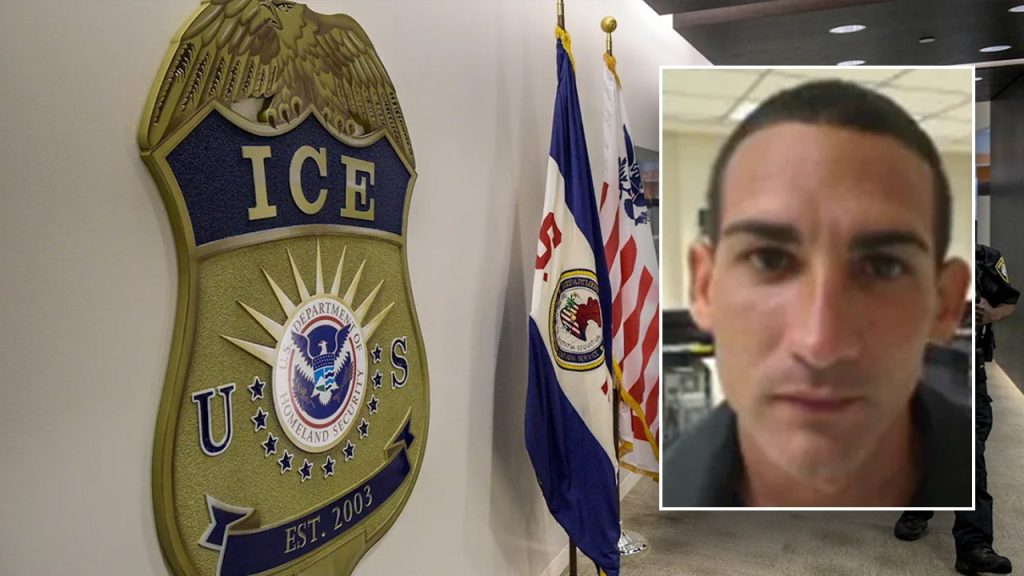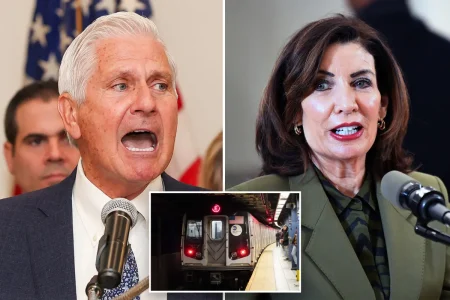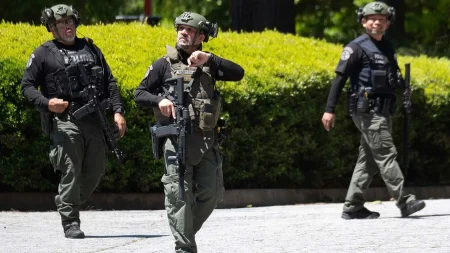Immigration Policy Under Scrutiny After Tragic Dallas Murder
In a recent statement on Truth Social, President Donald Trump addressed the shocking murder of Chandra Mouli Nagamallaiah in Dallas, Texas, characterizing it as a “terrible” crime resulting from what he describes as failures in immigration enforcement. The case has quickly become a focal point in ongoing debates about immigration policy, deportation procedures, and the handling of non-citizens with criminal records. Trump specifically pointed to the alleged perpetrator, 37-year-old Yordanis Cobos-Martinez, a Cuban national who reportedly has a history of arrests within the United States. The brutal nature of the crime—Nagamallaiah was allegedly attacked with a machete at a downtown motel, stabbed and beheaded in front of his wife and son following what witnesses describe as a dispute over a broken washing machine complicated by language barriers—has intensified public reaction to the case.
The incident raises troubling questions about current deportation procedures, particularly regarding individuals with criminal histories whose countries of origin refuse to accept their return. According to Immigration and Customs Enforcement (ICE), Cobos-Martinez had been previously ordered for removal to Cuba but was released on supervision in January 2025 during the Biden administration after Cuban authorities declined to accept him due to his criminal record. This situation highlights a persistent challenge in U.S. immigration enforcement: what to do with individuals who cannot be deported despite removal orders. Trump’s statement strongly criticized the previous administration’s handling of such cases, suggesting that different policies could have prevented this tragedy. “This individual was previously arrested for terrible crimes, including child sex abuse, grand theft auto and false imprisonment, but was released back into our homeland under incompetent Joe Biden because Cuba did not want such an evil person in their country,” Trump wrote, adding a promise that “the time for being soft on these illegal immigrant criminals is OVER under my watch!”
The case of Cobos-Martinez illustrates the complex interplay between domestic law enforcement, immigration policy, and international relations. When countries refuse to accept the return of their citizens, U.S. authorities face difficult decisions regarding detention versus supervised release. Supreme Court precedent limits how long individuals can be detained if deportation is not reasonably foreseeable, creating situations where people with removal orders may nonetheless remain in the United States under varying levels of supervision. This reality creates tension between constitutional limitations on indefinite detention and public safety concerns, especially when individuals have criminal histories. The current administration, through Trump’s statement, appears to be signaling a more aggressive approach to this issue, though specific policy changes remain to be seen.
The human dimension of this tragedy cannot be overlooked amid the policy debate. Nagamallaiah’s family has suffered an unimaginable loss, witnessing a loved one’s violent death in circumstances that defy comprehension. The victim was reportedly a merchant—a regular person going about his daily life—when the attack occurred. While the political discourse often focuses on abstract policies and statistics, cases like this remind us of the real human stakes involved in immigration enforcement decisions. The trauma experienced by the victim’s family represents the most devastating consequence of this incident, regardless of how one views the broader policy questions it raises. Their suffering deserves acknowledgment independent of the political context in which this crime is being discussed.
Looking forward, Trump praised current Homeland Security Secretary Kristi Noem and Attorney General Pam Bondi for “doing an incredible job” strengthening enforcement and promised that offenders will face prosecution “to the fullest extent of the law.” This suggests a continued emphasis on strict immigration enforcement as a cornerstone of the administration’s approach to public safety. The case has already prompted renewed calls for policy changes regarding the handling of non-citizens with criminal records, particularly when deportation proves impossible due to diplomatic complications. Advocates for stricter immigration controls point to this case as evidence supporting their position, while others caution against using individual tragedies to justify sweeping policy changes that could affect millions of people.
The Dallas murder case ultimately reflects the challenging intersection of criminal justice, immigration policy, and international diplomacy that has persistently challenged American policymakers across multiple administrations. The inability to deport individuals to countries unwilling to accept them creates genuine policy dilemmas with no easy solutions. While the current administration is signaling a tougher approach, the fundamental challenges remain: balancing public safety concerns with legal constraints on detention, navigating diplomatic relationships with uncooperative countries, and ensuring that immigration enforcement serves both justice and security. As this case moves through the criminal justice system—with Cobos-Martinez now charged with capital murder—the broader debate it has sparked about immigration enforcement will likely continue to influence policy discussions at both state and federal levels for the foreseeable future.











